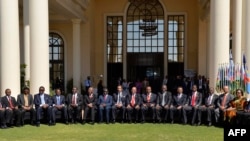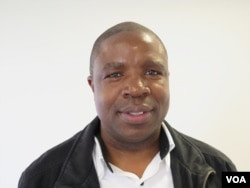Human rights groups have condemned leaders of the Southern African Development Community, or SADC, for failing to address regional human rights issues at a summit this week.
According to Amnesty International and Human Rights Watch, there are serious, ongoing cases of human rights abuses in at least six SADC countries Angola, Lesotho, Swaziland, South Africa, Zambia and Zimbabwe.
In their communiqué at the end of the summit in Botswana, leaders of the 15-member nation SADC never used the phrase "human rights."
That led Amnesty and HRW to accuse the SADC of not taking the allegations seriously.
“What is clear is that the [SADC] summits have become old boys' club where the leaders protect each other and look at each other’s interests and not improve the rights of the citizens of SADC,” said Dewa Mavhinga, is a senior Africa researcher at Human Rights Watch.
“For example, we have Angola where the government there is using a number of draconian laws to suppress journalists. There is no indication of when their rights will be protected," said Mavhinga.
The summit marked the end of Zimbabwe President Robert Mugabe's one-year term as SADC chairman. Rights groups didn't expect much from Mugabe, whose long record of suppressing opposition and rigging elections has made him a pariah in the West.
Deprose Muchena, Amnesty International's director for southern Africa, said he hopes the new chairman, Botswana's President Ian Khama, will listen to the rights groups' concerns.
“As leader of SADC we believe that President Ian Khama must work with his fellow regional leaders to try and find durable solutions to the human rights crisis that is likely to worsen now during his term,” said Muchena.
“If you go to Zimbabwe [they are] allowing the police and other security apparatus to revert to intimidate protesters and those that are seeking to speak out. And in particular, we are still getting very concerned that Itai Dzamara’s fate remains unknown,” he said.
Dzamara is a pro-democracy activist in Zimbabwe who disappeared in March. In the days before his disappearance, Dzamara had been leading protests calling for President Mugabe to step down.
So far, no African government has voiced concern over the missing activist.






